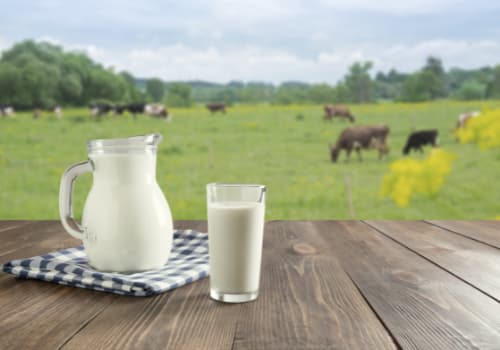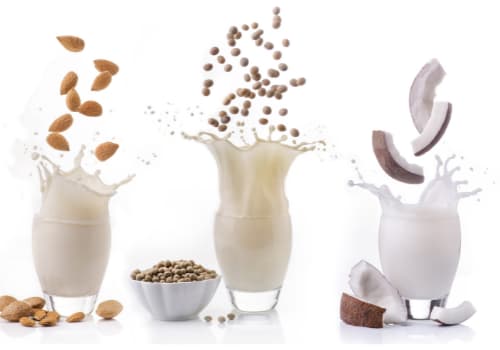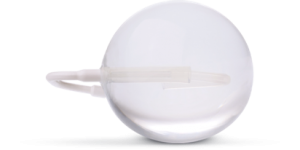How many dairy products should be consumed per day?
Science has already proven that there are a number of dairy benefits which cannot be taken lightly. However, it is also a fact that some individuals can tolerate these products better than others. This brings up two rather important questions. Is dairy good for you? Might lactose food be associated with some drawbacks?
If you feel that you may be experiencing digestive problems as a result of dairy products or if you are currently using the Spatz3 adjustable gastric balloon, the answers found below will prove to be quite informative.
If you have always thought that you needed to consume three servings of dairy products a day to get adequate calcium, science now points to the strong possibility that this isn’t so. Whether it was motivated by pressure from the dairy lobby or bad science, it seems that the recommendation for 1,000 mg of calcium each day is under scientific scrutiny.
Is dairy bad for you?
The question “Is milk good for you?” generates different opinions, as does the question of whether other types of dairy products, such as yogurt or cheeses, are good for your health.
Another consideration is that industrial milk production has changed. Far from the image of a cow grazing on a farm, most dairy foods come from animals that are fed medications intended to increase milk production as well as antibiotics. There is a concern that these practices negatively influence the quality of the milk and milk-based foods that we eat.

What about bone health? Ironically, a recent study found that high levels of milk consumption intake was associated with a higher incidence of bone fractures in women.
The truth of the matter is that dairy products have been consumed for thousands of years in one form or another. Therefore, the notion of “bad” depends more upon your unique metabolism as opposed to representing a blanket statement.
Having said this, some dairy products are relatively high in fat and cholesterol. This could represent an issue for those who have been diagnosed with obesity, high blood pressure (hypertension) or heart problems. There is also an ongoing debate involving whether or not chemical additives may pose long-term health risks. However, this research is far from conclusive at the present.
One main concern involves those who might be intolerant to lactose-based products. This scenario could very well outweigh many of the dairy benefits that might otherwise be enjoyed. Let’s take a closer look at lactose intolerance and its associated symptoms.
Lactose intolerant: Common symptoms
There are actually some really good reasons to take a closer look at how well your body tolerates dairy and whether it makes sense to cut down on dairy products or cut them out completely.
If you have an intolerance or allergy to dairy, you may suffer from gas, bloating, diarrhea, congestion and other symptoms after eating too much dairy-based food.
There are some individuals who are unable to properly metabolise lactose. Studies have shown that this condition is much more common in men than women. What are some common symptoms to look out for?

General Feelings of Nausea
Although this is a rather general symptom, it could very well indicate that you are sensitive to lactose. Assuming that you have consumed a dairy product, feelings of sickness can develop anywhere between a few minutes to a few hours after your meal was completed.
Cramps or an Upset Stomach
As your body is not able to break down the lactose enzyme, another symptom involves bloating or cramping. While this may not be severe, it can still make life uncomfortable if left unchecked. It will also be more difficult to digest other foods.
Diarrhoea
Diarrhoea is caused by the inability of the healthy flora in your gut to digest lactose. As a result, it begins to ferment within the intestinal tract; leading to cramping and in some cases, bouts of diarrhoea.
Alternatives to lactose food
What if you are hoping to remain healthy and trim? Is it possible to embrace a weight loss dairy diet? There are actually a number of healthy alternatives to mention and these can provide you with all of the vitamins and nutrients which your body requires.
Alternative dairy-free milks, including almond milk, hemp seed milk, hazelnut milk, quinoa milk, coconut milk and rice milk, are increasingly available. If you try them, you may switch for taste, or because it’s an easy way to reduce your reliance on dairy foods.
As far as your calcium needs, dairy isn’t the only, or even the best way to get calcium from your diet. Try eating more dark green, leafy vegetables, oatmeal, white beans, dried figs, as well as nuts, seeds and legumes. Here are some alternatives to dairy:
Butter Alternatives
Although butter is extremely tasty, it can wreak havoc upon your digestive tract if you happen to be lactose intolerant. One useful method is to replace butter with other healthy substances such as virgin olive oil and avocado.
Lactose-Free Cheese
You will be happy to know that many cheeses offer lactose-free alternatives (although this is not true when referring to farm-raised varieties). Cheeses without lactose taste virtually identical to their traditional counterparts.

Ice Cream Bliss
There is no reason why a lactose intolerance diet has to be boring. In fact, homemade ice creams consisting of berries, almond milk and chipped ice can provide a tasty treat with none of the uncomfortable symptoms. Soy or coconut milk can likewise be used as alternatives if you do not enjoy the nutty flavour of almond milk.
Dairy consumption with Spatz3 gastric balloon
Please note that the dairy foods list highlighted in the last section represents only a handful of options. You can always perform more research in order to discover even more lactose-free solutions.
What if you are fitted with a Spatz3 gastric balloon? In the event that you suspect that you are intolerant to lactose, it is wise to first speak with a physician or a nutritionist. After all, you do not want to experience bloating and discomfort if they can be avoided by embracing a lactose-free diet. Additionally, cutting out the majority of dairy products can help you to realise your dietary goals.
Although there are many dairy benefits associated with lactose-based foods, not everyone can digest these substances. If you are looking to make the most out of your adjustable gastric balloon, eliminating lactose could be an excellent strategy to consider.
If you’d like more of this kind of easy-to-understand health and wellness advice, please subscribe to the Spatz Medical Blog by filling in the subscription box in the column to the left.


